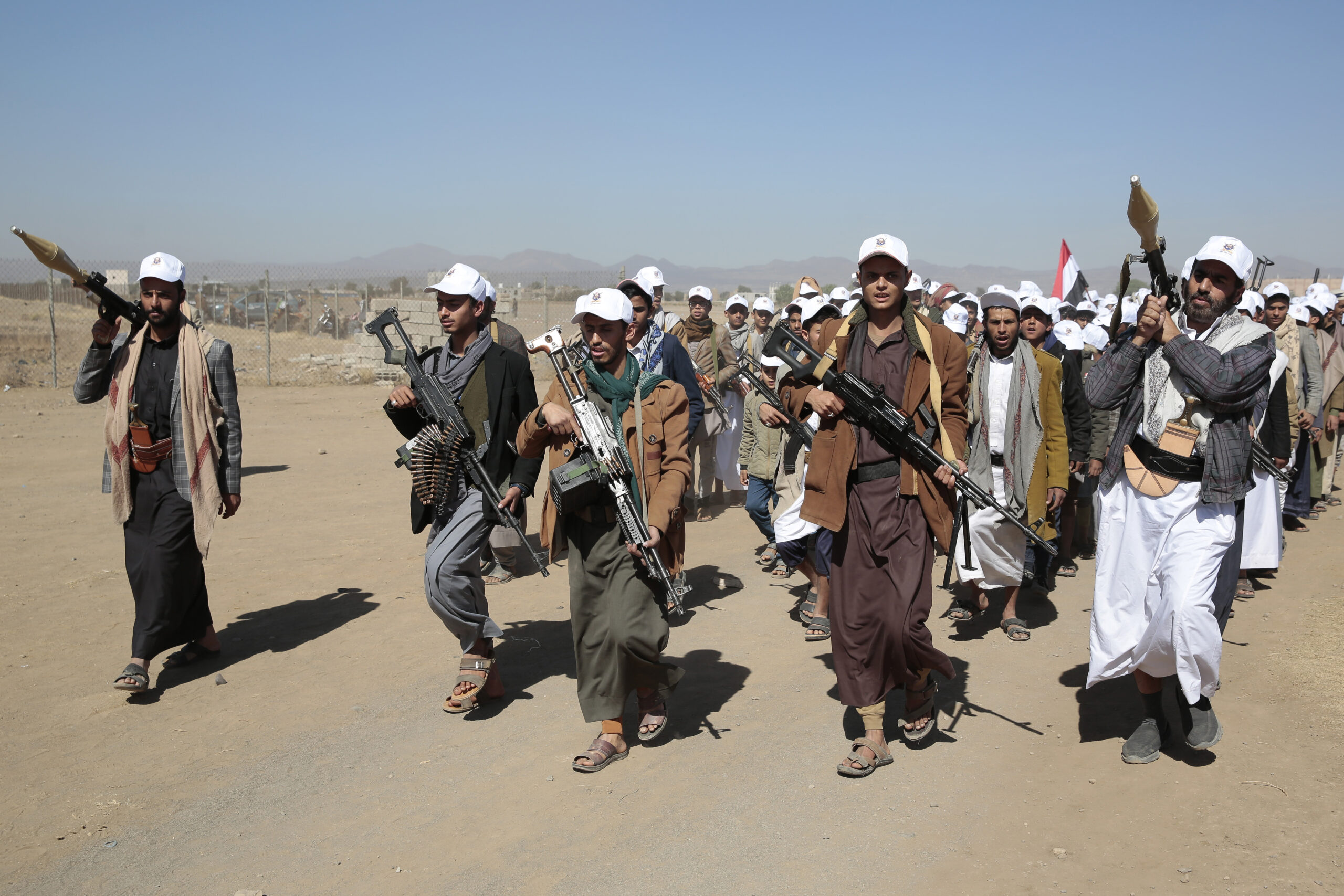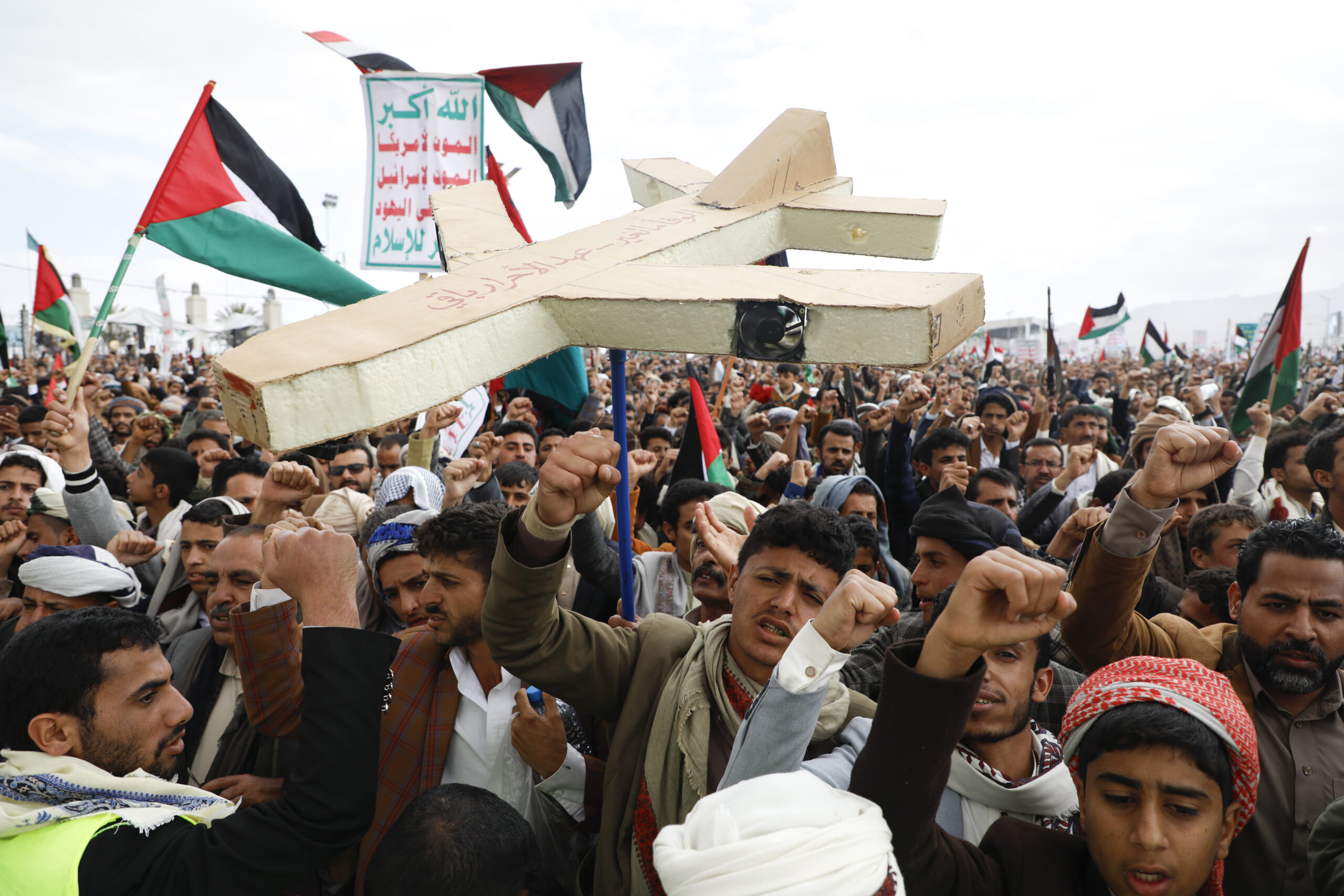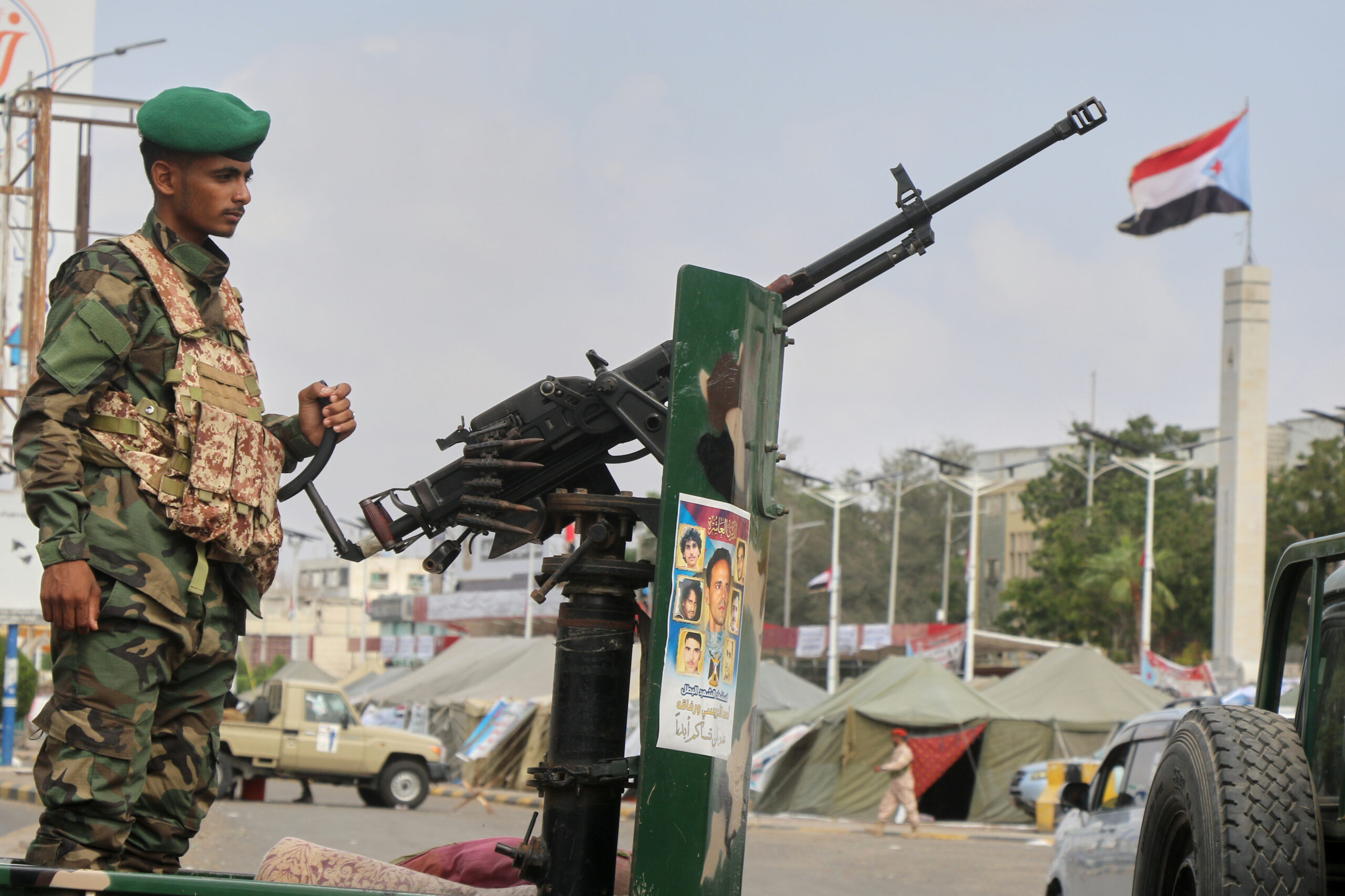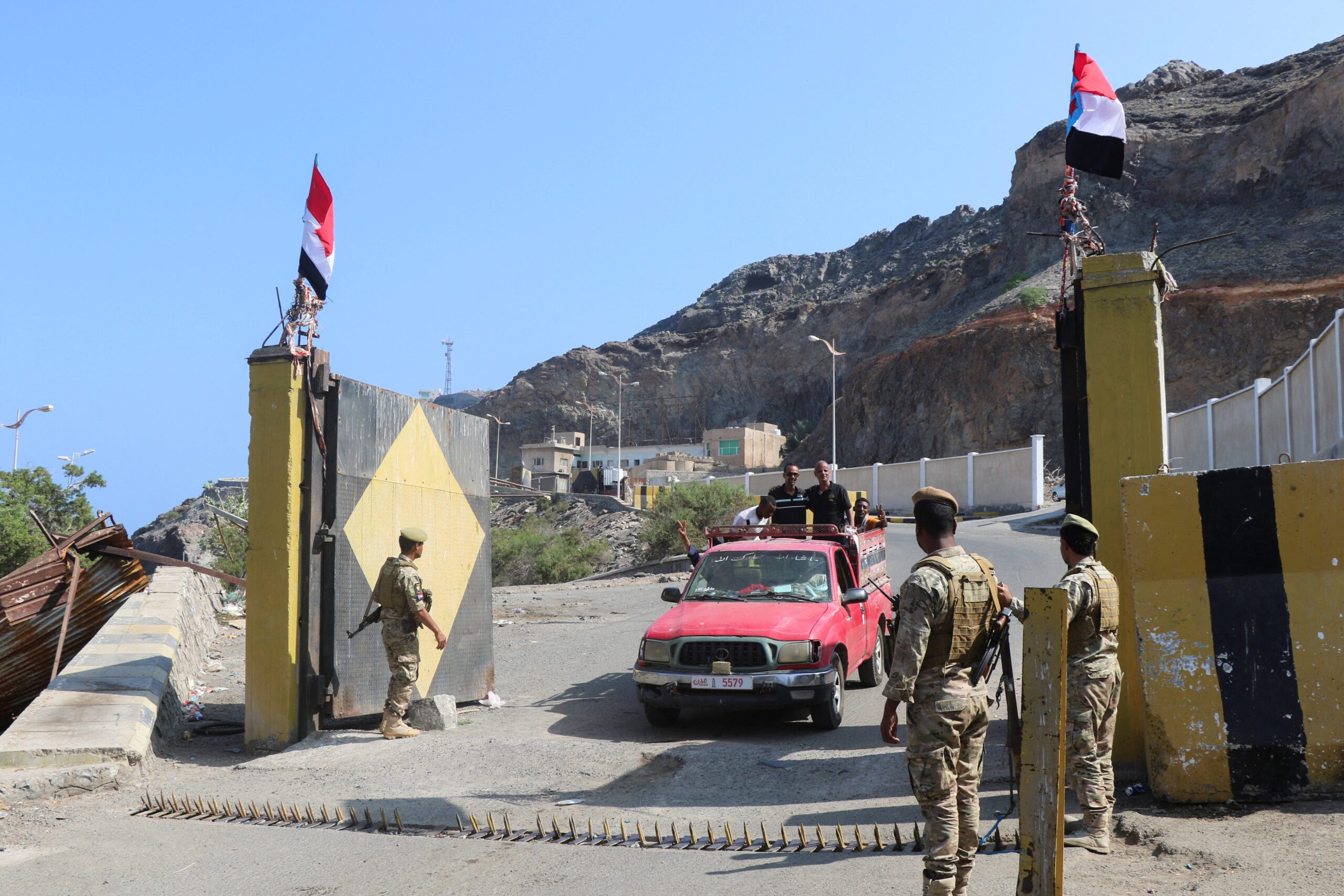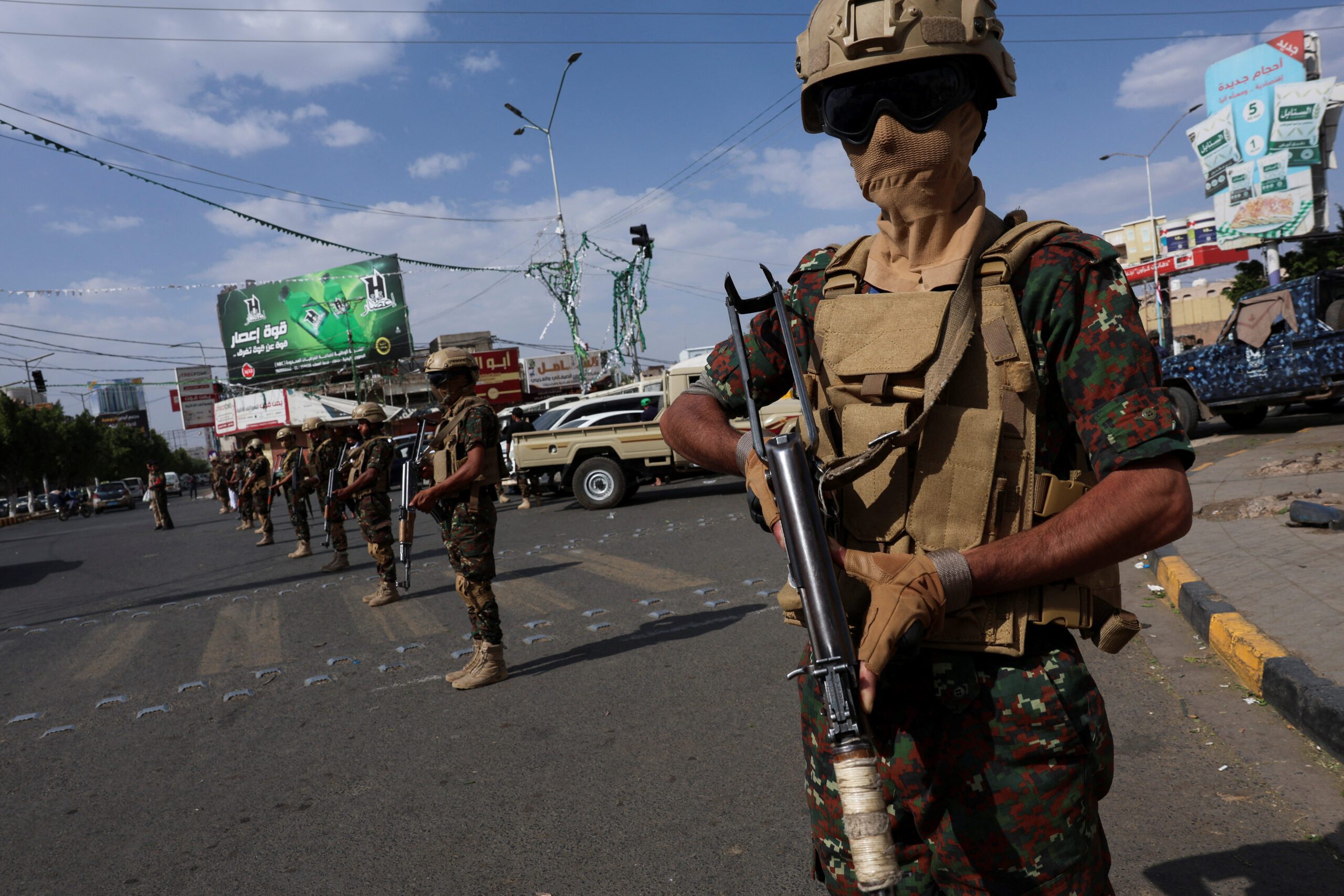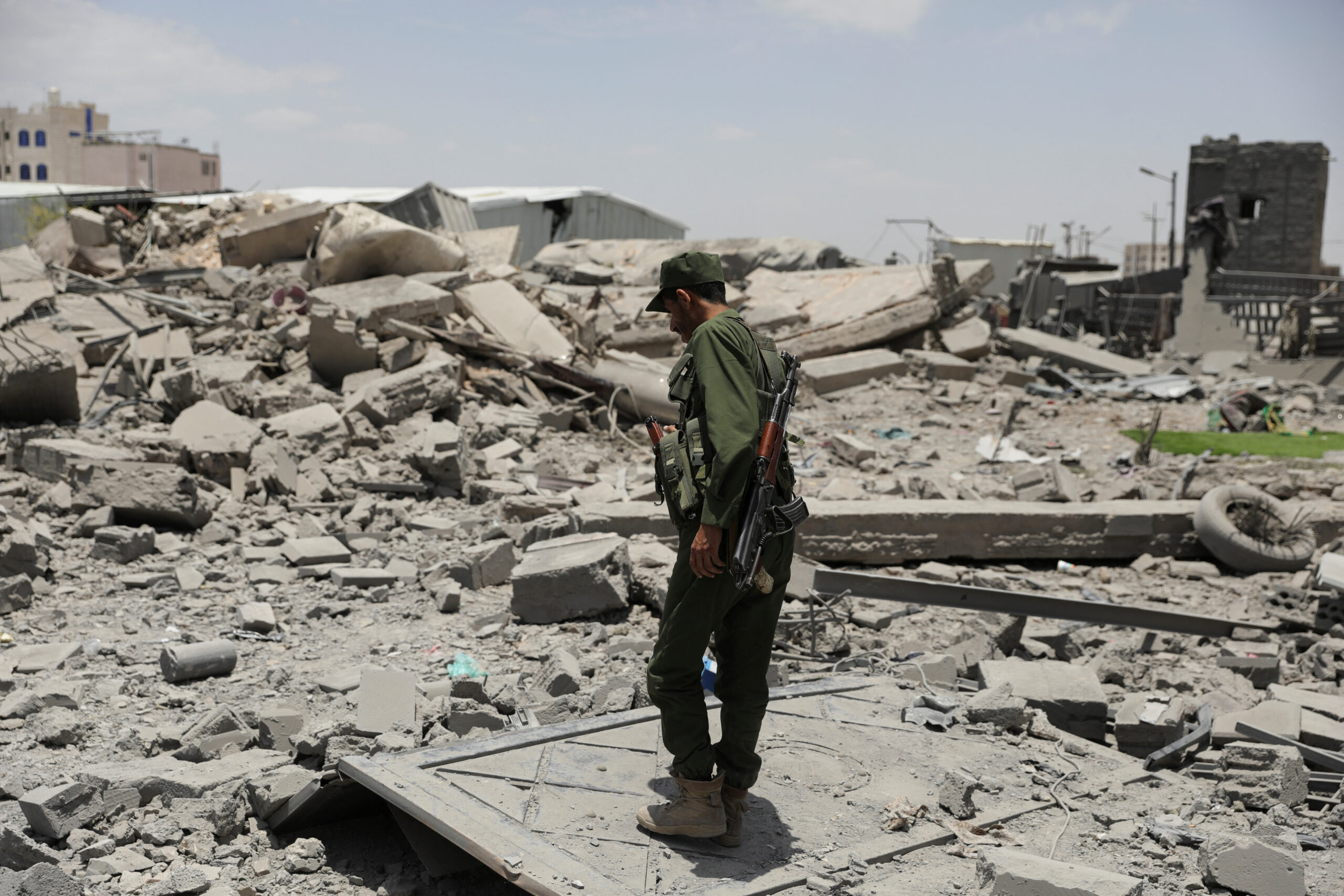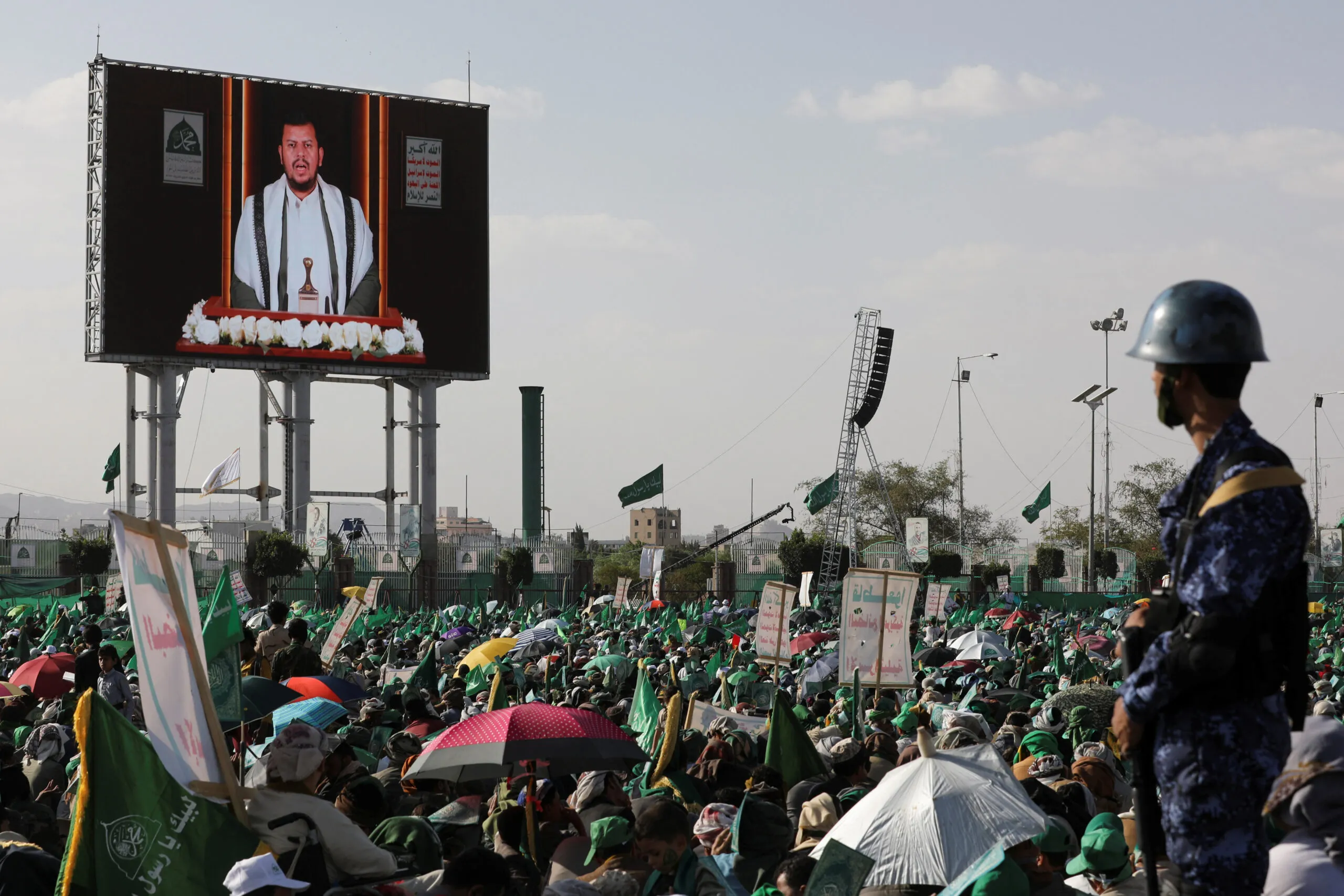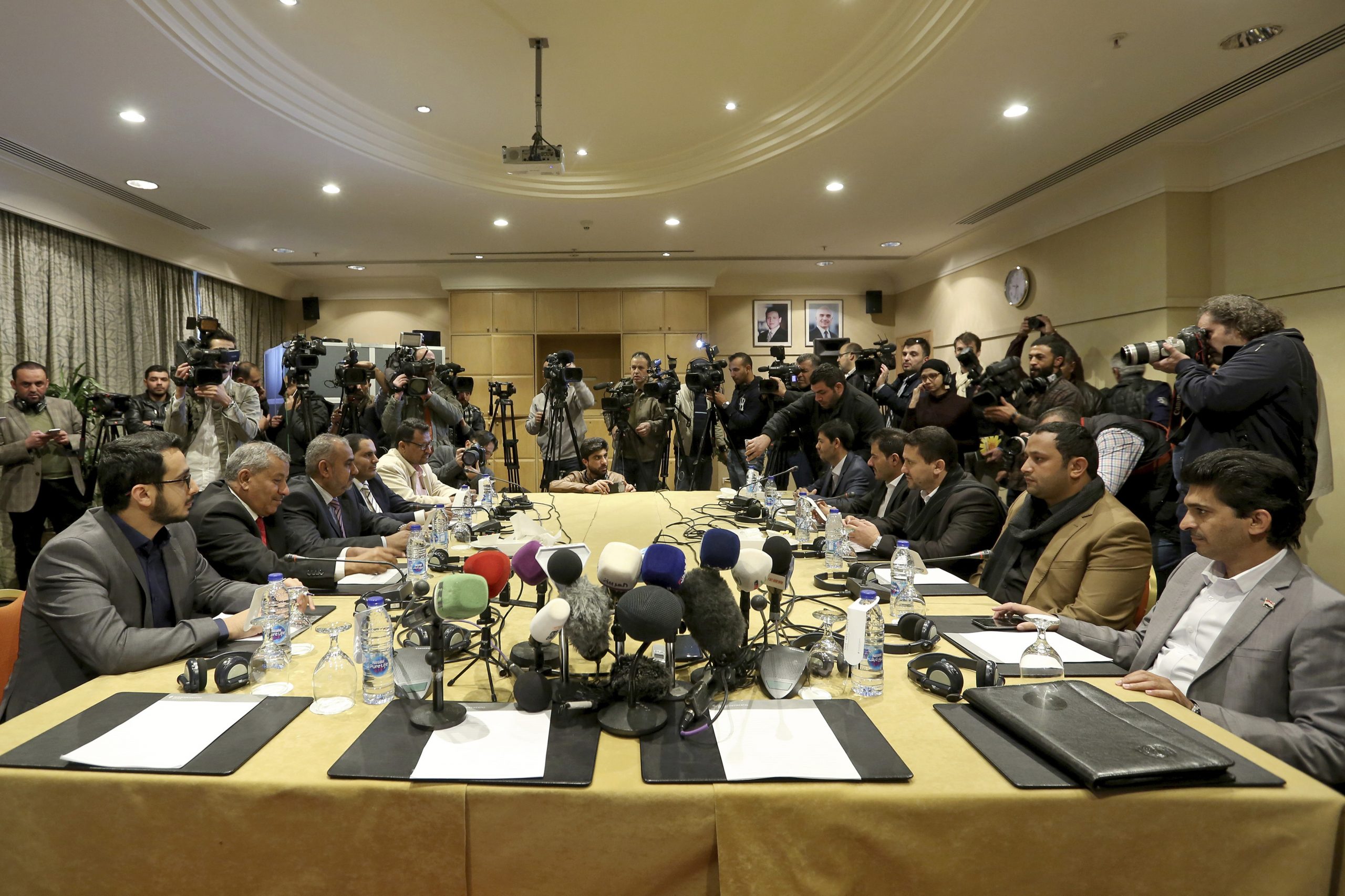The Houthis Escalate and Expand the War
How should the United States respond to an escalation in Houthi attacks when its current approach isn’t working?
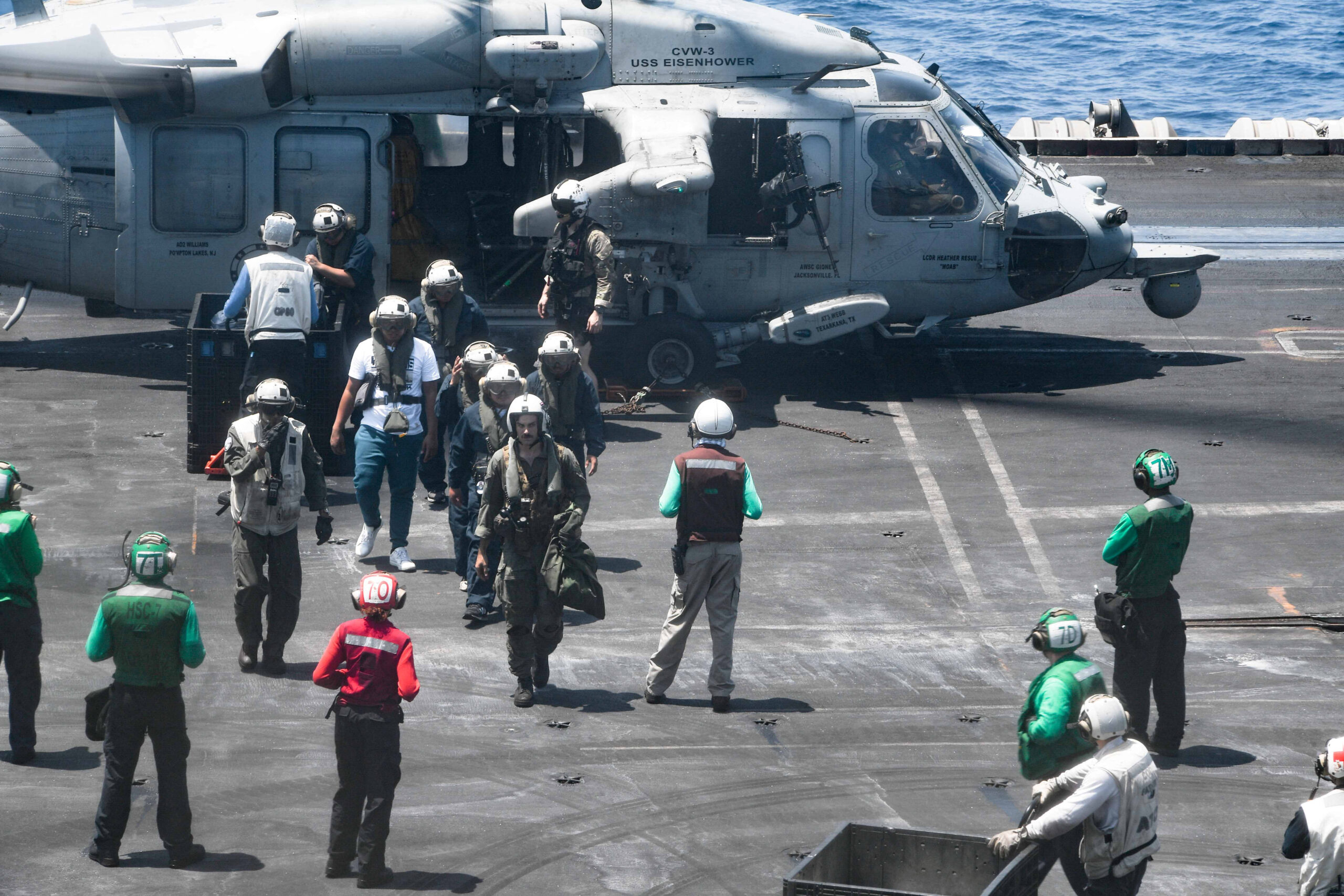
On June 6, the Houthis arrested several United Nations and international nongovernmental organization employees, linking them to what the group called an “American-Israeli spy cell.” Six days later, the Houthis claimed their first successful drone boat attack, striking the Greek-owned bulk carrier Tutor off the coast of Yemen in the Red Sea. At the same time, after a dip during Ramadan, Houthi attacks on commercial shipping in and around the Red Sea are again on the rise. U.S. intelligence reports suggest the Houthis are, once again, reaching out to al-Shabaab in Somalia about weapon transfers, and the group continues to look for ways to expand its reach, threatening ships as far away as the Mediterranean. These recent developments indicate the Houthis are escalating and looking to expand their war with the United States.
This should come as no surprise: This is very much the approach that the Houthis took during their six successive wars against the Yemeni government of President Ali Abdullah Saleh from 2004-10. The Houthis would face a setback, such as the death of their founder in 2004, or the destruction of their farms, and then regroup and reattack. The common denominator to all of this was the simple formula of escalate and expand. The first Houthi war, from June to September 2004, was largely centered on the northern governorate of Saada. By 2005, the fighting had spread into the neighboring governorate of Amran. Then, over the next two years, it crept further south until residents in Sanaa could hear the shelling. Today, of course, the Houthis control much of northern Yemen. But while the group’s enemy has changed from Saleh to the United States, its strategy has not. The Houthis are still looking to escalate and expand the war.
The Houthi’s actions in early June indicate exactly how they will attempt to do this. First, the Houthis will look to increase the number of attacks. The more missiles and drones they fire, the more likely it is that they will have a successful strike. Second, as the drone boat indicates, the Houthis will look to utilize new weapons and forms of attacks. In this they will likely be aided by Iran, which may use the Houthis to test out new weapon platforms. Third, as the Houthis have already threatened, they will attempt to broaden their targets beyond the Red Sea and into the Indian Ocean and Mediterranean Sea. The wider their target area, the greater impact they will have. Fourth, and related, the Houthis will look to build on Iran’s axis of resistance by partnering with groups that, while not necessarily ideologically aligned, have similar short-term goals, like al-Shabaab. The more threats the Houthis can present the United States within the region, the better their chances of success. But perhaps the most worrying of the five avenues of escalation is what might be called the “exploit vulnerabilities” approach. This is what the Houthis did by arresting U.N. and international NGO workers and then linking them to what the group is rather ridiculously calling spy rings. The Houthis can pressure the United States through the U.N. and international aid agencies, essentially raising the stakes of the conflict.
All of this creates a problem for the United States, which from the beginning has sought to do the least amount possible to mitigate Houthi attacks. Much of this caution, of course, is a result of trying to avoid being sucked into a broader regional war, but it has also put the United States in the unenviable position of reacting to Houthi attacks instead of seizing the initiative.
In October and November 2023, when the Houthis began attacking commercial ships in the Red Sea, the United States settled on a defense only approach, shooting down Houthis missiles and drones. Then, in January, when it became clear that defense only wasn’t sufficient, the United States issued a public warning, and then began carrying out limited strikes on Houthi launching points in Yemen.
Over the last six months, that has largely been the pattern: The Houthis fire missiles or drones at commercial ships, the United States shoots them down and then, every so often, launches offensive counterstrikes against Houthi targets in Yemen. As U.S. Navy commanders recently told the Associated Press, this is the “most intense running sea battle the Navy has faced since World War II.” But for all the tactical successes in shooting down Houthi attacks, the United States has not achieved its broader goals of either deterring the Houthis from carrying out attacks or so degrading the group to the point that it becomes incapable of carrying out future attacks.
Instead, the Houthis – like in the past – are escalating and seeking to expand the war. The United States now finds itself in a similar position to the one it was in six months ago: How should it respond to Houthi attacks when its current approach isn’t working?
The defense only approach didn’t work, and now the limited military strikes approach isn’t working. That leaves the United States with two equally unappealing options. Either continue its approach of defending commercial shipping and conducting periodic strikes on Houthi targets in Yemen and hope that something changes, or escalate to match the Houthis. Unfortunately for the United States, neither option has a high likelihood of success. The current U.S. approach isn’t working, and more of the same will neither deter nor degrade the Houthis. Increasing military attacks, on the other hand, is exactly what the Houthis want. The Houthis want a broader more expansive war with the United States – partly because it is good for them domestically and regionally, and partly because the Houthis think they can outlast and withstand more pain than the United States.
As ever in Yemen, there are no easy or obvious answers for the United States.
The views represented herein are the author's or speaker's own and do not necessarily reflect the views of AGSI, its staff, or its board of directors.

